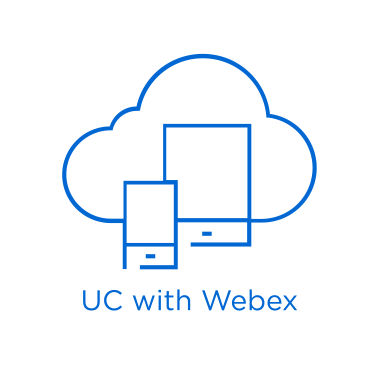What is hosted voice?
- Hosted voice is a cloud-based service where a business’s telephone system and PBX reside off-site and are managed by a third-party, providing telephone connectivity via the Internet using Voice over Internet Protocol (VoIP).
Many organizations are turning to hosted voice solutions to reduce the cost of enterprise telephony and increase productivity of employees and IT teams. But what is hosted voice and how does it provide advantages over traditional telephone systems? Here’s a short introduction to “What is hosted voice?” that offers some answers.
What is hosted voice?
Hosted voice is a cloud-based business service where a company’s telephone technology is hosted off-site by a service provider. Rather than purchasing, installing, maintaining and upgrading telephone infrastructure and a PBX (private branch exchange) on business premises, hosted voice services allow a company to outsource these tasks to a third-party who provides connectivity via Internet connections using VoIP. Businesses pay a monthly fee for use of hosted voice services.
What is hosted voice vs. non-hosted voice?
Non-hosted voice refers to telephone systems that are located and maintained within a business’s premises by an in-house IT team.
What is hosted voice’s greatest advantage?
Hosted voice solutions offer more flexibility and scalability than non-hosted solutions. As business telephony needs evolve, companies can quickly scale up or down without capital expense and without the risk of over-provisioning. Additional advantages include:
- Fewer administrative burdens on IT teams for managing business telephony.
- Greater support for mobility and remote workers.
- Improved reliability and risk management through SLAs that ensure availability of voice services during natural disasters or outages.
What is hosted voice’s most significant drawback?
Hosted voice services may not offer as many customizable features as an on-premise systems, and may have more difficulty integrating with in-house IT infrastructure.
What is a hosted voice system’s cost advantages?
Hosted voice requires no upfront capital expense. Instead, companies pay a service fee for the monthly usage of hosted voice services. Additionally, hosted voice enables businesses to pay only for the telephone services they need at any given time.
What is hosted voice versus Unified Communications?
Unified Communications is a set of technologies for improved productivity and collaboration. Unified Communications is often made possible by hosted voice services and may include audio, video and web conferencing, desktop sharing, instant messaging, mobility and presence.
What is hosted voice with Spectrum Business for enterprise?
As a leading provider of fiber solutions for the largest businesses in the U.S., Spectrum Business for enterprise offers a fully scalable, pay-as-you-go Hosted Voice solution that combines the advantages of the cloud and Unified Communications features with the convenience of a managed service.

